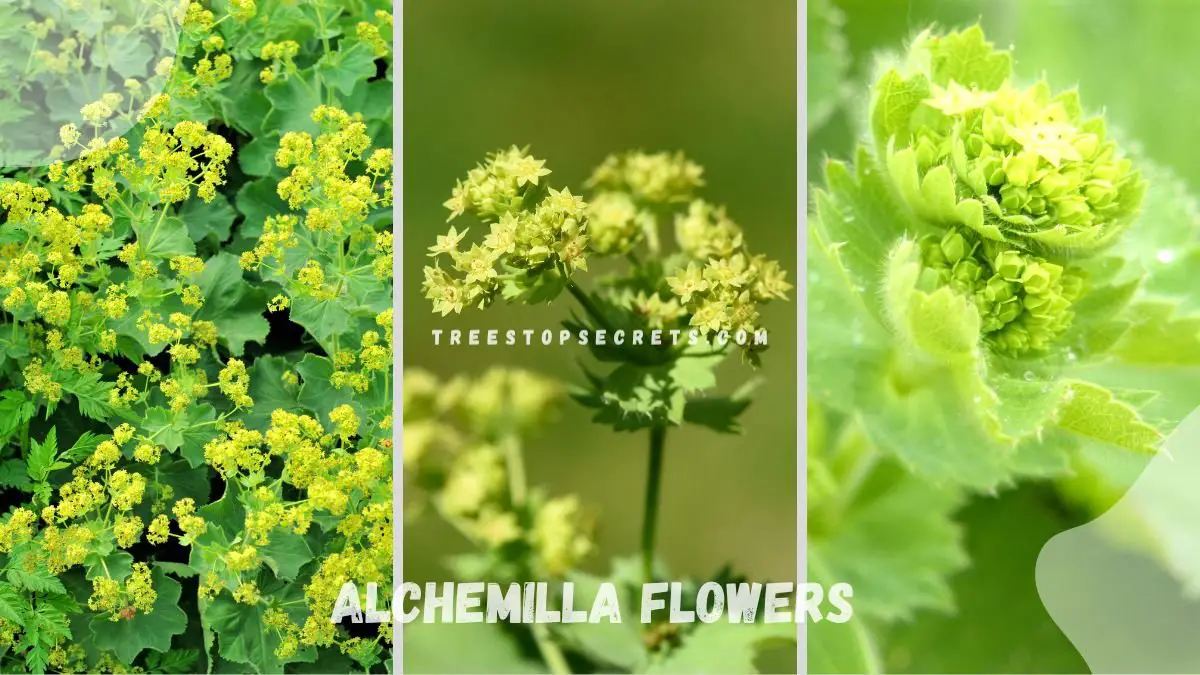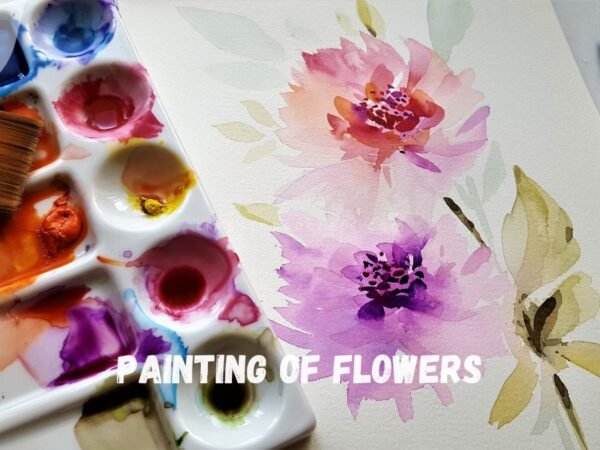Discover the enchanting world of alchemilla flowers, where delicate beauty meets resilient strength. These blossoms, known for their vibrant hues and healing properties, hold a fascinating allure that captivates both nature lovers and herbal enthusiasts alike. From their historical significance to their modern-day uses, alchemilla flowers offer a captivating contrast between tradition and innovation.
Key Takeaways
- Grow Your Own Alchemilla Flowers: Start your garden with Alchemilla flowers by following the planting and care guide provided.
- Elevate Your Garden Aesthetics: Enhance the beauty of your garden by incorporating Alchemilla flowers into your landscaping.
- Enjoy Seasonal Blooms: Experience the seasonal highlights of Alchemilla flowers throughout the year.
- Get Your Questions Answered: Find answers to common queries about growing and maintaining Alchemilla flowers.
- Make Informed Purchases: Use the buying guide to select the best Alchemilla plants for your garden.
- Support the Environment: Discover the environmental benefits of cultivating Alchemilla flowers in your garden.
Discover Alchemilla Flowers
Key Characteristics
Lady's mantle can be identified by its lobed, serrated light green leaves that have a distinctive appearance. The plant also features airy sprays of yellow flowers without petals, adding to its unique charm. It is important to note that Lady's mantle exhibits hardiness in zones 3-8, making it suitable for various climates.
Lady's mantle spreads slowly through rhizomes, which are underground stems that help the plant propagate. As it grows, the plant forms mounds, creating a visually appealing display in gardens. The plant's leaves have unique palmately veined patterns, enhancing its overall aesthetic appeal.
Seasonal Growth Patterns
Lady's mantle has garnered awards and recognition for its exceptional qualities. These accolades may include recognition for its foliage or flowers, highlighting the plant's beauty and resilience. Moreover, Lady's mantle may have received notable mentions within gardening communities, further solidifying its reputation as a beloved garden plant.
Planting and Care Guide
Best Practices for Planting
When planting alchemilla flowers, ensure they are in a sunny or partially shaded area. Avoid overly wet conditions to promote healthy growth. Plant in well-draining soil to prevent waterlogging and root rot.
Seasonal Care Tips
For alchemilla flowers, establish a seasonal care routine. Water the plant as needed, ensuring the soil is moist but not waterlogged. After blooming, shear the plant to encourage new growth.
Maintenance Essentials
To maintain alchemilla flowers, engage in essential tasks like deadheading spent blooms. Prevent self-seeding by removing faded flowers promptly. Divide established clumps every few years to maintain plant health.
Enhancing Your Garden with Alchemilla
Design Ideas
Alchemilla flowers are versatile and can be used in various design ideas. Their delicate foliage and vibrant flowers add a charming touch to any garden. Consider planting them along borders or in clusters for a striking visual impact.
You can use Alchemilla as mounded perennials to create beautiful garden layouts. Their low-growing nature makes them perfect for edging pathways or lining flower beds. Mix them with taller plants for a dynamic look.
To enhance your garden aesthetic, try incorporating Alchemilla in different ways. Utilize their unique leaves to create texture contrasts in your garden. Pair them with bold-colored flowers for a pop of color.
Companion Plants
When selecting companion plants for Alchemilla, choose ones that complement its characteristics. Plants like Astilbe and Geraniums work well alongside Lady's mantle. These plants share similar growing conditions and create a harmonious garden display.
Complement the foliage and flower colors of Alchemilla by planting it with suitable companions. For example, purple Salvia or pink Roses can enhance the green hues of Lady's mantle. This creates a visually appealing color palette in your garden.
Planting specific companions alongside Alchemilla can offer various benefits. For instance, pairing it with Lavender attracts pollinators like bees and butterflies. This promotes biodiversity in your garden and supports a healthy ecosystem.
Seasonal Highlights
Spring Care
Lady's mantle requires proper care during the spring season to thrive. Understanding its specific needs in spring is crucial for healthy growth. To nurture the plant effectively, provide adequate sunlight and water.
During spring, it is essential to prune any damaged or overgrown parts of the plant. This encourages new growth and enhances its overall appearance. Applying a balanced fertilizer can boost its development during this active growing season.
Summer Maintenance
In summer, regular maintenance tasks are vital to ensure Lady's mantle's well-being. Exploring these tasks helps in preventing issues due to the hotter weather. Adequate watering is crucial to sustain the plant during the heat.
Caring for Lady's mantle in summer involves monitoring for pests and diseases that thrive in warm conditions. Providing shelter from intense sunlight can prevent wilting and sunburn on the delicate foliage.
Autumn Preparation
As autumn approaches, preparing Lady's mantle for the upcoming season is essential. Taking necessary steps to protect it from colder temperatures ensures its survival through winter. Mulching around the plant helps in insulating the roots.
To prepare for autumn, gradually reduce watering as the weather cools down. Removing any dead foliage and debris prevents fungal diseases from taking hold during the damp autumn months. Ensuring proper drainage also helps in avoiding waterlogging.
Common Questions Answered
Gardening Queries
Lady's mantle, also known as alchemilla flowers, is a popular choice for gardeners due to its unique appearance and ease of care. How much sunlight does Lady's mantle require? Lady's mantle thrives in partial shade, making it ideal for planting under trees or near taller plants. What soil conditions are best for Lady's mantle? Well-draining soil is crucial to prevent root rot; adding compost can improve soil quality. How often should I water Lady's mantle? Watering when the soil is dry to the touch is recommended, typically once a week.
- Lady's mantle prefers partial shade.
- Well-draining soil is essential for its growth.
- Water when the soil is dry to the touch.
Care Tips
To ensure your Lady's mantle flourishes, follow these care tips. Watering: Maintain moist soil without overwatering to prevent root rot. Pruning: Trim back faded blooms to encourage new growth and maintain plant health. Overall plant health: Regularly inspect for pests and diseases, addressing any issues promptly.
- Watering: Keep soil consistently moist.
- Pruning: Trim faded blooms regularly.
- Plant Health: Monitor for pests and diseases vigilantly.
Latest in Horticulture
Trends and News
Lady's mantle, also known as alchemilla flowers, continues to captivate horticulture enthusiasts with its diverse cultivars. Stay informed about the latest trends in cultivating these delicate blooms. Explore recent news and developments in the gardening world that revolve around this enchanting plant.
Discover innovative practices and emerging techniques that are reshaping the way Lady's mantle is grown. From unique cultivation methods to creative uses in landscaping, there is always something new to learn in the realm of alchemilla flowers.
Innovations
Delve into the realm of new innovations transforming the growth of Lady's mantle. Learn about modern techniques and tools that are revolutionizing plant care for these exquisite blooms. Embrace how technology is playing a pivotal role in shaping the future of gardening, especially when it comes to nurturing alchemilla flowers.
Uncover cutting-edge approaches that streamline the cultivation process and enhance the overall health of Lady's mantle plants. From automated watering systems to advanced fertilization methods, these innovations are paving the way for more efficient and sustainable gardening practices.
Buying Guide for Alchemilla
Choosing the Right Size
Lady's mantle, also known as alchemilla flowers, comes in various sizes. Determining the appropriate size considerations is crucial for successful cultivation. Understanding how to select the right plant size for your garden space is essential. Factors such as sunlight, soil quality, and watering frequency influence the plant's growth and spread.
- Factors influencing plant size include sunlight exposure, soil nutrients, and water availability.
- Optimal growth conditions can lead to larger plant sizes and more abundant blooms.
- Consider the space available in your garden to ensure the Lady's mantle has room to thrive.
Where to Buy
When looking to purchase Lady's mantle, it's important to find reputable sources that offer high-quality plants. Exploring both online and local options can provide a variety of choices for acquiring this beautiful plant. Knowing what to look for when buying Lady's mantle ensures you get a healthy specimen for your garden.
- Reputable nurseries and online plant retailers are good sources for purchasing Lady's mantle.
- Local garden centers often carry a selection of alchemilla flowers for immediate planting.
- Look for plants with vibrant green leaves and sturdy stems when selecting Lady's mantle.
Environmental Benefits
Attracting Pollinators
Lady's mantle, also known as alchemilla flowers, attracts pollinators like bees and butterflies to your garden. These insects play a crucial role in plant reproduction by transferring pollen between flowers. Creating a pollinator-friendly environment benefits not only the alchemilla flowers but also other plants in your garden.
- Lady's mantle attracts bees and butterflies
- Pollinators help in plant reproduction
- Benefits of a pollinator-friendly environment
Soil Health Improvement
To ensure optimal growth of alchemilla flowers, it's essential to focus on improving soil health. Methods such as adding organic matter and using cover crops can enhance the soil quality for these plants. Soil amendments like compost and mulch can significantly contribute to the overall health of the plant.
- Methods to improve soil health
- Importance of soil quality for Lady's mantle
- Benefits of soil amendments
Summary
Incorporating Alchemilla flowers into your garden can bring a touch of elegance and charm while offering environmental benefits. By following the planting and care guide, you can enhance your outdoor space with these beautiful blooms throughout the seasons. Alchemilla not only adds visual appeal but also contributes to a sustainable ecosystem, making it a valuable addition to any garden.
As you delve into the world of horticulture with Alchemilla flowers, consider the seasonal highlights and common questions answered to optimize their growth. Utilize the buying guide to acquire the perfect plants for your garden. Embrace the beauty and benefits of Alchemilla to create a flourishing and eco-friendly outdoor haven.
Frequently Asked Questions
What are the ideal growing conditions for Alchemilla flowers?
Alchemilla flowers thrive in partial shade to full sun and well-draining soil. They prefer moist conditions but can tolerate some drought. Plant them in a location with good air circulation to prevent diseases.
How do I care for Alchemilla flowers during the blooming season?
Water Alchemilla flowers regularly, especially during dry spells, to keep the soil consistently moist. Deadhead faded blooms to encourage continuous flowering. Apply a balanced fertilizer in early spring to support healthy growth.
Are Alchemilla flowers prone to any pests or diseases?
Alchemilla flowers are generally resistant to pests and diseases. However, they may occasionally attract aphids or powdery mildew. Monitor your plants regularly and treat any infestations promptly with insecticidal soap or neem oil.
Can I grow Alchemilla flowers in containers or pots?
Yes, you can grow Alchemilla flowers in containers or pots. Ensure the containers have drainage holes and use a well-draining potting mix. Water regularly and provide adequate sunlight for optimal growth.
How can I propagate Alchemilla flowers to expand my garden?
You can propagate Alchemilla flowers by division in early spring or fall. Carefully dig up the plant, separate the root clumps, and replant them in prepared soil. Water thoroughly after planting to help establish the new divisions.
Image Source: Paid image from CANVA




